What is MCP(Model Context Protocol)?


Model Context Protocol (MCP) is an open standard that lets AI systems securely connect to business tools and live data without custom integrations. It solves the NxM integration problem by using one consistent protocol for all connections, making AI faster to deploy, easier to scale, and more reliable. This guide explains how MCP works, why it matters, real-world use cases, and how to set up MCP inside YourGPT to give your AI real business context.
Generative AI has transformed how we work, automate, and create content. But without context, you end up writing long prompts to explain about your company or get generic, unhelpful responses. For AI to deliver real value, it needs access to your latest information and live business context.
Model Context Protocol (MCP) addresses this gap. MCP provides a standard way for AI to access structured business data wherever it lives (CRM, tools) making context portable and accessible on demand.
The first step for many businesses is using MCP to connect their core knowledge base with AI, making essential company information available in any workflow.
In this blog, we’ll cover:
Let’s get started and first lets understand basics about MCP.

Model Context Protocol is an open-source standard created by Anthropic.
Model Context Protocol is an open-source standard created by Anthropic. It provides a unified interface for AI systems to connect with external tools, data sources, and applications. It acts as a standard bridge between an AI system and the rest of a company’s technology stack.
Without MCP, every AI integration needs separate code. One for Salesforce, another for Slack, another for internal databases, and so on. MCP removes this need by offering one consistent protocol for all connections.
Earlier, integrating AI with business tools meant facing two difficult choices.
MCP solves both issues. It defines a single, consistent way for AI systems to request data, trigger actions, and process responses. As a result:
The protocol launched in November 2024 and adoption has grown quickly.
MCP gives your AI a structured way to understand what’s possible and a reliable method to make it happen.

MCP operates on a client–server architecture where three components work together to enable communication between AI systems and external tools. The client (such as Claude, Cursor, or Windsurf) sends structured requests, the server (like YourGPT) processes these requests, and tools or data sources respond with the required information or actions.
This setup allows AI systems to access external tools without custom code or complex integrations. Once configured, YourGPT uses MCP to connect securely and consistently with the applications and data you already use.
The MCP server acts as the secure gateway between YourGPT and third-party systems. It receives structured requests from YourGPT AI agents and routes them to the right service or data source.
YourGPT works as an MCP client. It sends requests (such as fetching customer data or updating records) to the MCP server and handles the responses, delivering context-rich information or triggering actions as needed.
The protocol layer sets the rules for how data and commands move between YourGPT and your business tools. It covers:
By integrating with MCP, YourGPT can connect with a wide range of platforms without the heavy lifting of building separate integrations for each tool. This keeps your workflows efficient, secure, and ready to grow as your business expands.
Connecting multiple AI agents with several business tools usually creates a mess of custom integrations, known as the NxM problem. This is a common blocker for scaling AI in real business operations.
Previously every AI agent must be individually connected to every tool, so you end up with N x M unique integrations.
Example:
If you have 5 AI agents (N=5) and 6 business tools (M=6), it needs to build and maintain 30 separate connections.
Model Context Protocol (MCP) changes the equation. Instead of every agent talking directly to every tool, you connect everything through one standard protocol.
Result:
Instead of N x M custom connections, you only need N + M integrations.
For teams that want to implement MCP without building custom servers from scratch, MCP360 offers a ready-to-use unified gateway. It follows the same Model Context Protocol structure but manages authentication, routing, and failover automatically. Instead of maintaining multiple integrations, teams can. connect once through MCP360 and gain access to 100+ external tools instantly.
With MCP, both business users and developers benefit from faster setup, easier scaling, and a growing open community all without the headaches of traditional integration.
YourGPT’s Model Context Protocol (MCP) integration allows you to create your own MCP server and connect it with tools such as Claude Desktop, ChatGPT, Cursor, and Windsurf. It provides a secure and consistent way for your AI to access trained information across platforms.


Once the MCP server is active, you can connect it with supported tools. For detailed, step-by-step instructions on connecting with Claude Desktop, Cursor, and Windsurf, follow our full setup guide here.
Model Context Protocol (MCP) enables your AI assistant to deliver real, practical value in your daily operations. Here’s how MCP transforms everyday workflows and enhances productivity across key business functions:
MCP is a secure, standardized way for your AI assistant to connect with other business tools. It works like a universal adapter, allowing your AI to share and receive information from systems like CRMs, order databases, and project management software.
Building custom integrations can be slow and costly. MCP uses a common, reliable structure that saves time and reduces the need for constant updates, making it easier to connect to different tools.
Yes. MCP uses secure tokens to control access, ensuring that only authorized tools and systems can connect to your AI assistant. This helps keep your data safe.
MCP allows your AI to pull real-time information, like order status or account details, straight from your systems. This means customers get accurate answers faster, improving their experience.
Yes. With MCP, your AI can access your sales data, update contacts, and even send follow-up messages. This helps your sales team stay organized and efficient.
YourGPT’s built-in MCP integration is designed to be straightforward. Some technical steps are involved, but clear instructions and secure tokens make setup manageable even without deep technical knowledge.
MCP can link your AI to tools like project management platforms, order systems, CRM software, and more. YourGPT currently supports integrations with Claude Desktop, Cursor, and Windsurf.
No. MCP is designed for real-time data exchange. It helps your AI assistant respond quickly and accurately, keeping your workflows efficient.
As your business grows, MCP makes it easy to connect new tools without rebuilding everything. This keeps your AI assistant aligned with your changing needs.
In your YourGPT dashboard, go to Integrations and select MCP. Follow the setup steps to create a secure server, add your chosen tools, and start connecting everything you need.
AI without real context is limited. Most businesses struggle to make their AI genuinely useful because access to current, reliable company knowledge is missing.
MCP is not just another integration layer. It is a practical standard for connecting your AI assistant to the data and workflows that matter. This is not about hypothetical future scenarios. It’s about making AI work in your actual environment today.
MCP connects AI to your actual business needs, so that context should be shared.
If your AI isn’t working with real-time company data and day-to-day processes, you’re leaving value on the table.
Integrate with MCP to make YourGPT a working part of your daily operations—available wherever your team works.
Join 10,000+ Business smartly Automating Operations with YourGPT AI.
No credit card required • Full access • Limited time offer
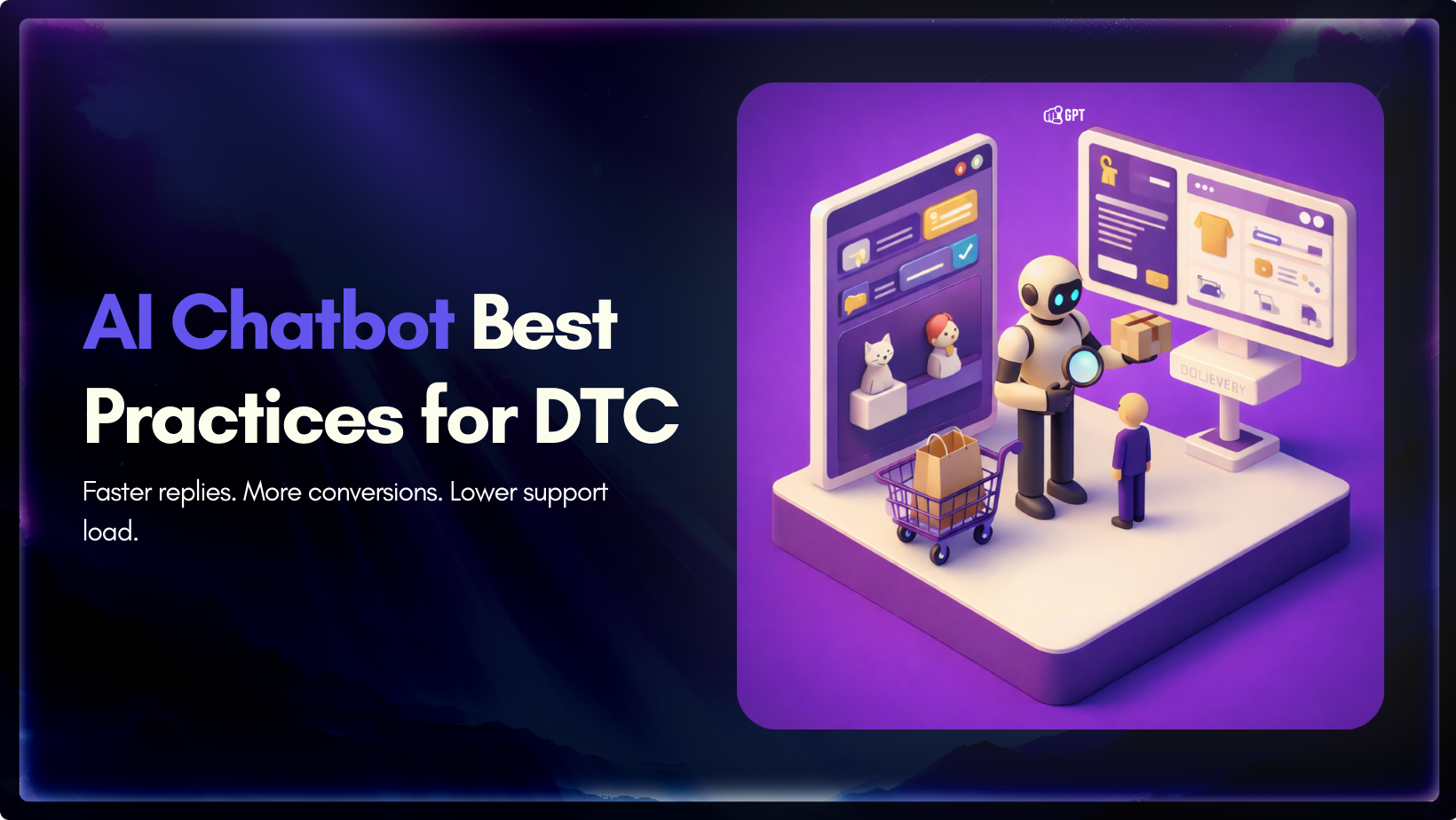
Nearly 70% of shoppers who add something to their cart leave without buying (glued). Some were never serious. But a lot of them had a question, needed a fast answer, and moved on when one did not come. That is the actual problem AI chatbots solve in DTC, when built correctly. A specific shopper, a […]

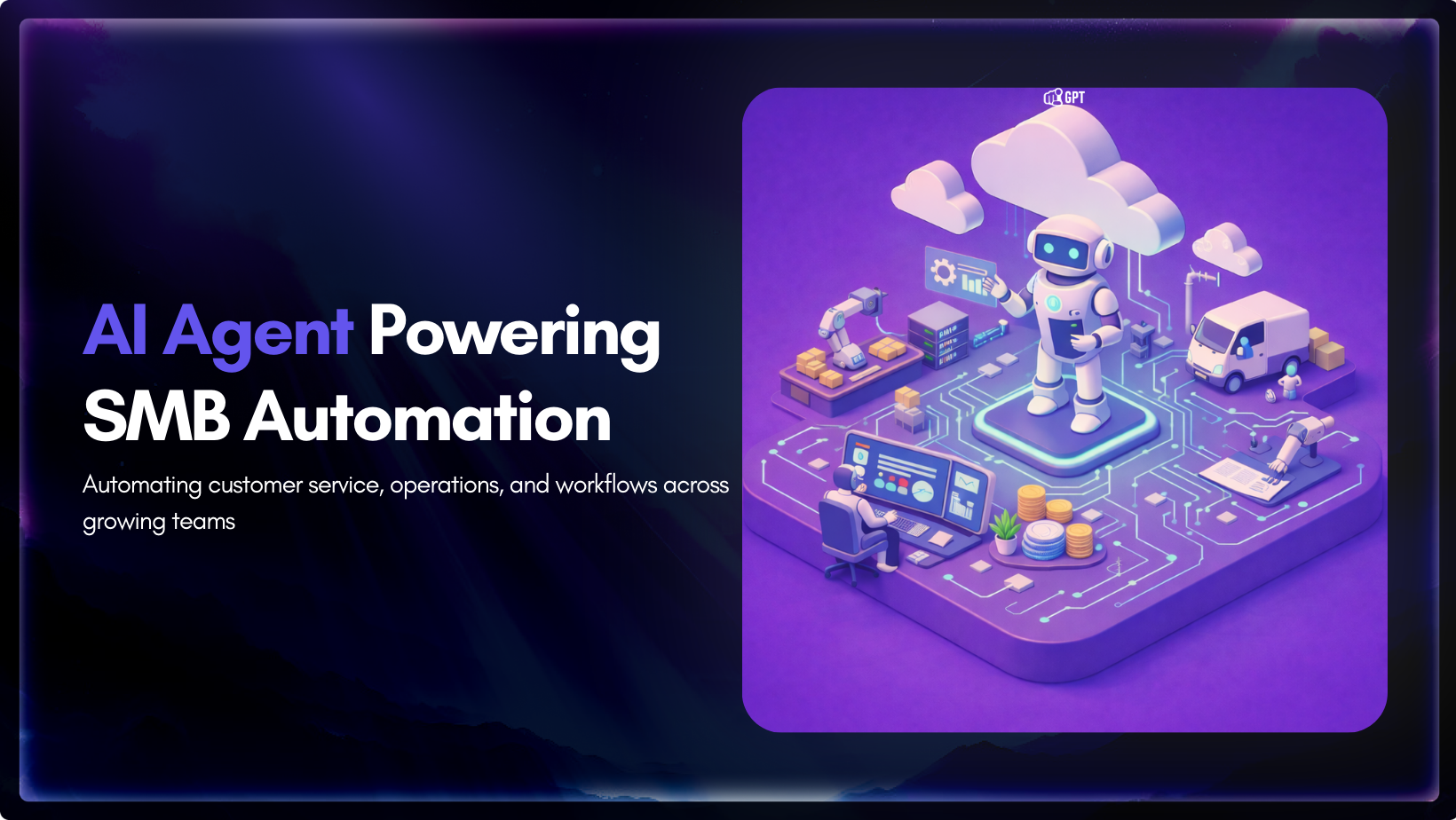
Small and medium businesses are facing a structural shift. Customers expect instant responses. Work happens across dozens of tools. Teams remain lean. Costs keep rising. Yet service quality is expected to match large enterprises. For years, businesses depended on chatbots, helpdesks, and manual workflows. These systems offered limited relief, handling basic questions and ticket routing […]

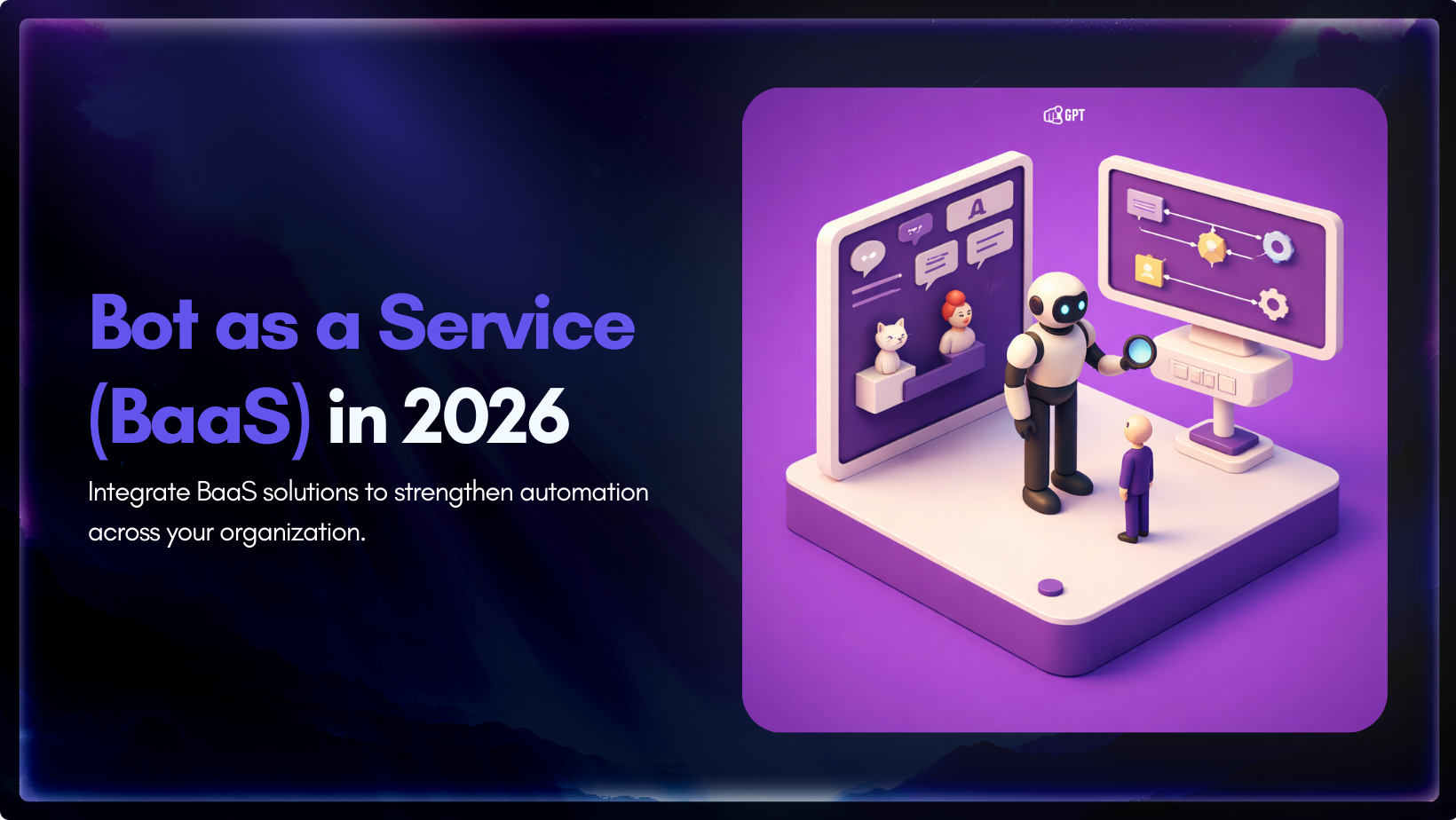
Automation defines how modern enterprises execute, respond, and grow. Customer conversations are handled by AI. Transactions move through automated workflows. Approvals route across departments without manual follow-ups. In high-performing organizations, intelligent systems are embedded directly into revenue operations, service delivery, finance, and internal support. Investment trends confirm this shift. The global conversational AI market surpassed […]

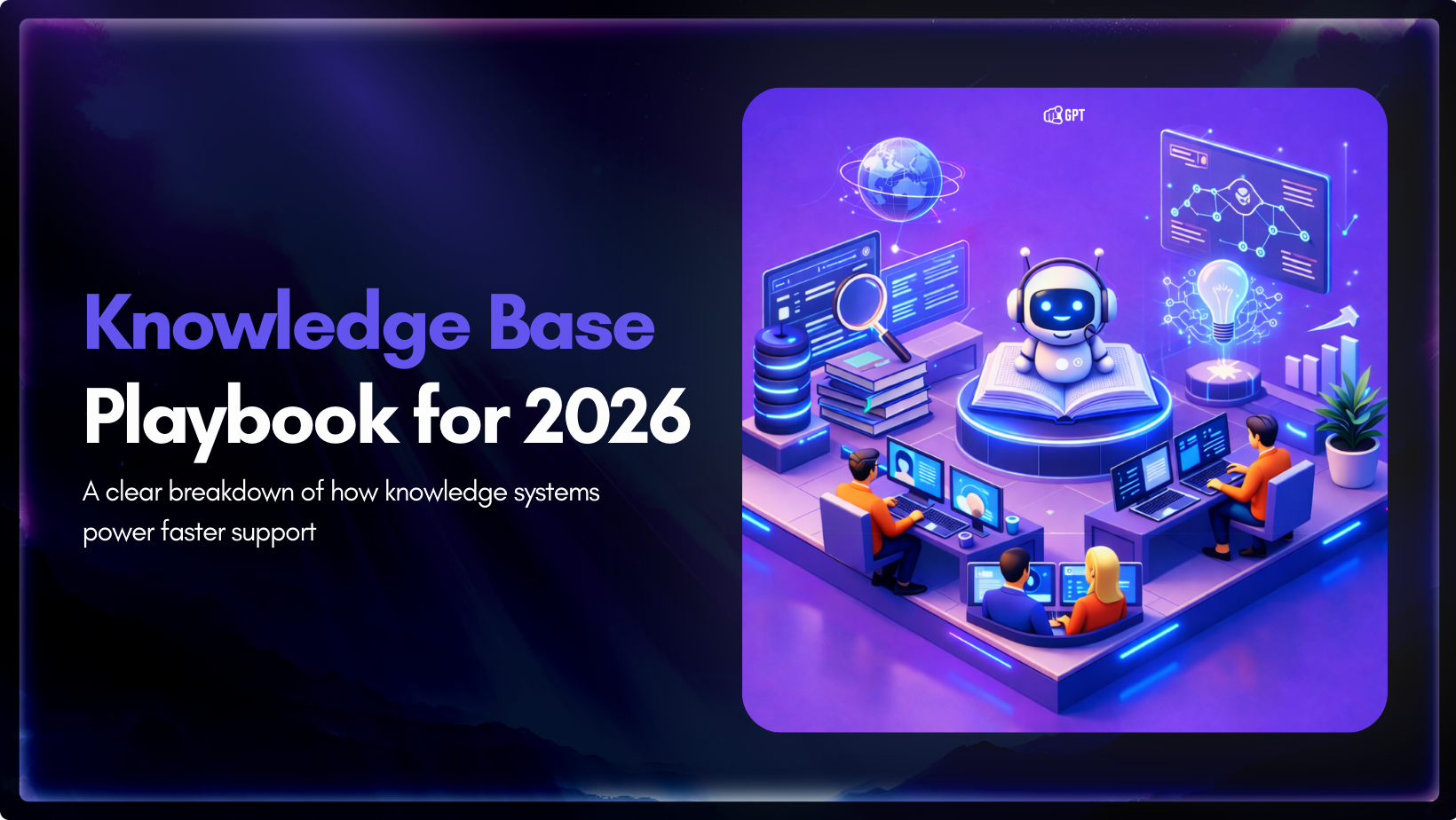
Access to clear, accurate information now sits at the center of customer experience and internal operations. People search first when setting up products, reviewing policies, or resolving issues, making structured knowledge essential for fast, consistent answers. A knowledge base organizes repeatable information such as guides, workflows, documentation, and policies into a searchable system that supports […]

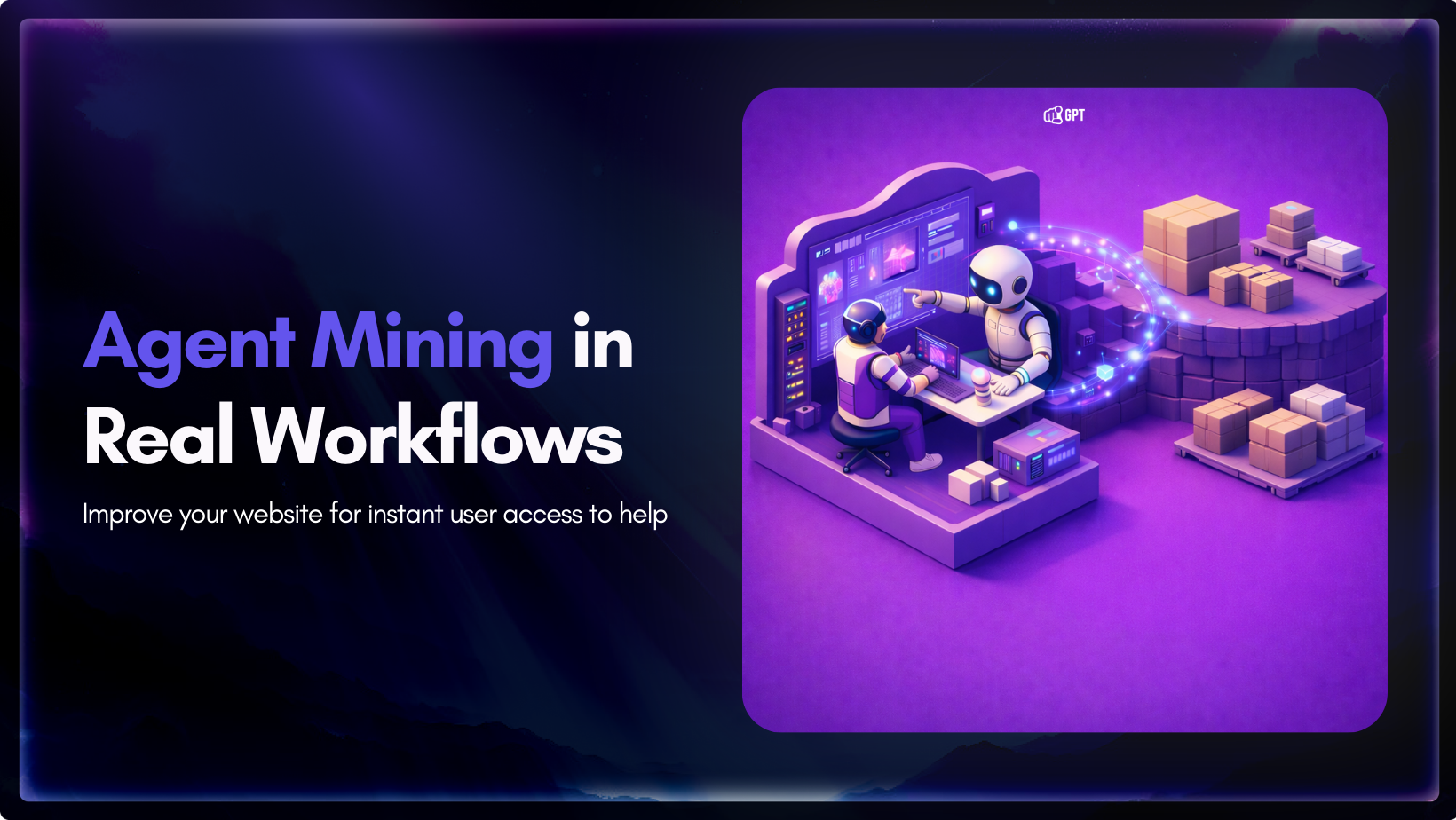
TL;DR Agent mining shifts AI from answering questions to executing real work across systems through controlled, repeatable workflows with verification. By automating repetitive operations with guardrails and observability, agents reduce friction, improve consistency, and let humans focus on decisions and edge cases. For a decade, AI was mostly framed as something that answers. It explains, […]

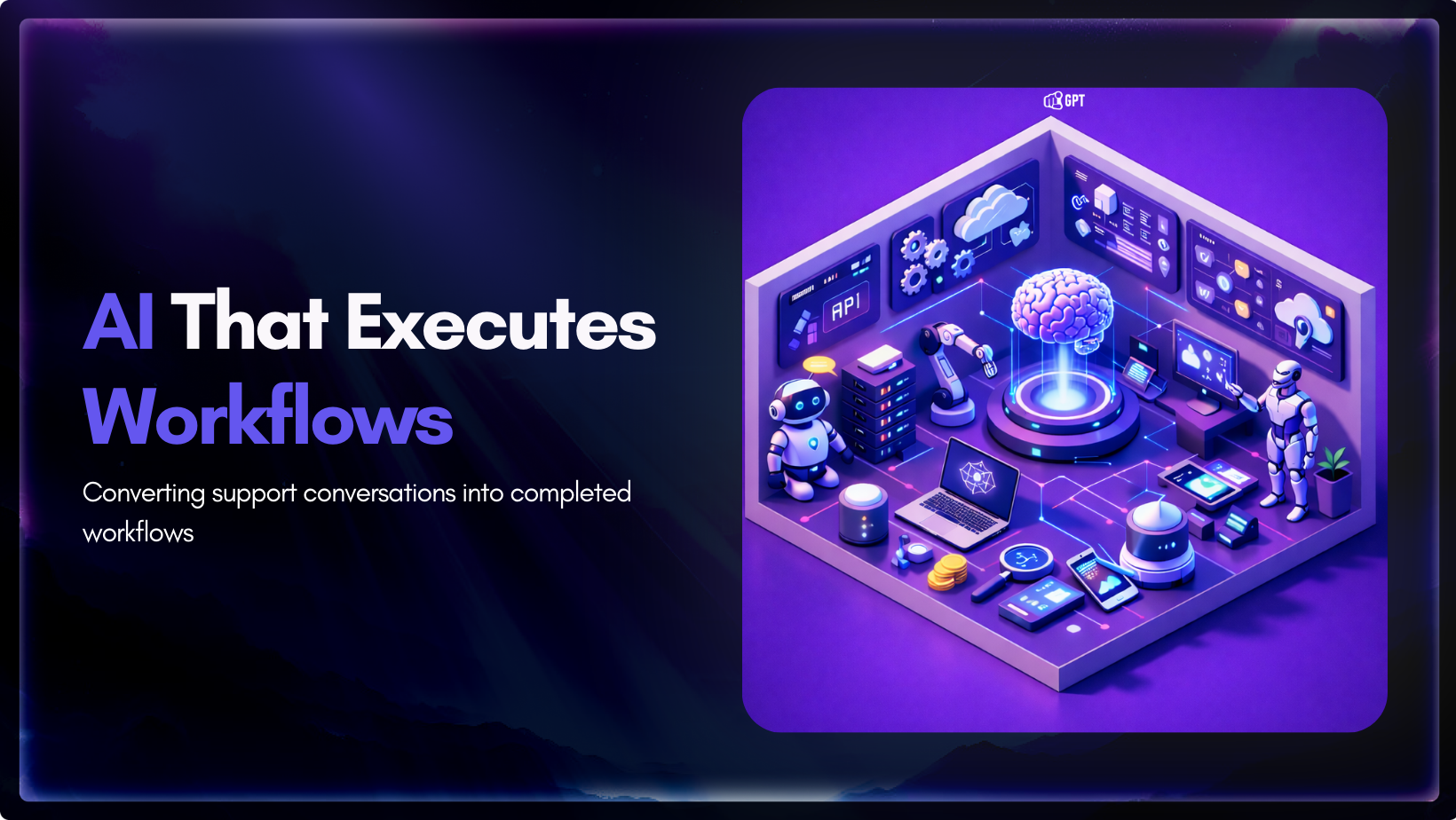
Say “AI” and most people still think ChatGPT. A chat interface where you type a question and get an answer back. Fast, helpful, sometimes impressive. Three years after ChatGPT went viral, surveys show that’s still how most people think about AI. For many, ChatGPT isn’t just an example of AI. It is AI. The entire […]
